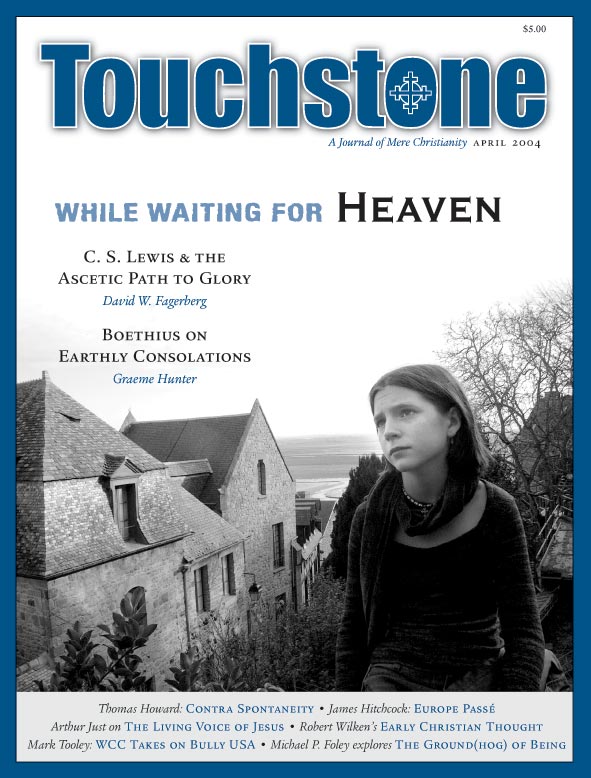Today in Our Hearing
The Living Voice of Jesus in the Gospel of Luke
by Arthur A. Just
Viva vox Jesu—the living voice of Jesus—is what we hear when his written word is read and preached. In lesson and sermon, this word, transcribed in the divinely inspired pages of the Holy Scriptures and canonically received by the Church, is proclaimed as the living voice of Christ in the here and now of Christ’s body, which is the Church. By this bodily proclamation, Christ is present in his Church in a bodily way. It is his living voice.
This sense of Christ’s presence serves also as a principle of the Word’s interpretation. Exegesis is always kerygmatic and therefore homiletical, and to interpret Scripture rightly requires a proper hermeneutical method that reflects a biblical theology of preaching.
Consequently, to confess our preaching as viva vox Jesu is to speak of the Christocentricity of Holy Scripture. Preaching renders Christ present. When the Word is proclaimed, it is Christ who is heard. We recognize this as the teaching of the Apostle Paul:
But how are they to call on him in whom they have not believed? And how are they to believe in him of whom they have never heard? And how are they to hear without someone preaching? And how are they to preach unless they are sent? As it is written, “How beautiful are the feet of those who preach the good news!” But they have not all obeyed the gospel. For Isaiah says, “Lord, who has believed what he has heard from us?” So faith comes from hearing, and hearing through the word of Christ. (Romans 10:14–17 ESV, emphasis added)
Luke, Preacher & Catechist
This perspective seems particularly characteristic of the writings of Luke. We may observe this by considering the prologue to his Gospel (1:1–4):
Since many have endeavored to reproduce a narrative (in Greek, diegesis) concerning the events that have come to fulfillment among us, just as those who were eyewitnesses from the beginning and became ministers of the Word delivered these traditions to us, it seemed good to me also, after investigating from the beginning every tradition carefully, to compose systematically a narrative for your benefit, most excellent Theophilus, in order that you come to recognize completely (epignois) the reliability (asphaleian) concerning the words by which you have been catechized (katechethes).
Luke’s stated purpose in writing his Gospel is, first, kerygmatic. By describing his gospel as a “narrative” (diegesis), Luke certainly places it into a literary genre familiar to the first century, subject to a specific kind of literary analysis. Yet his Gospel is not merely historical but also kerygmatic: a theological presentation of the events of the life of Jesus of Nazareth that bring to “fulfillment” God’s plan revealed in the Old Testament. The catechized person will listen to Luke’s Gospel to hear how Jesus fulfills biblical prophecy.
From the very beginning of his Gospel, Luke places Jesus within the context of Old Testament prophetic history as one who is now the final voice of God because he is the very Son of God. Gradually and systematically Luke demonstrates who Jesus is. Indeed, the major question in his Gospel is the identity of Jesus. Every event in Jesus’ life fills in the portrait. The Gospel is Christology.
Arthur A. Just is Dean of the Chapel and Professor of New Testament at Concordia Lutheran Seminary in Fort Wayne, Indiana. He is the author of a two-volume commentary on the Gospel of Luke in the Concordia Commentary Series (Concordia Press, 1996, 1997).
subscription options
Order
Print/Online Subscription

Get six issues (one year) of Touchstone PLUS full online access including pdf downloads for only $39.95. That's only $3.34 per month!
Order
Online Only
Subscription

Get a one-year full-access subscription to the Touchstone online archives for only $19.95. That's only $1.66 per month!
bulk subscriptions
Order Touchstone subscriptions in bulk and save $10 per sub! Each subscription includes 6 issues of Touchstone plus full online access to touchstonemag.com—including archives, videos, and pdf downloads of recent issues for only $29.95 each! Great for churches or study groups.
Transactions will be processed on a secure server.
more from the online archives

23.6—November/December 2010
Darwin, Design & Thomas Aquinas
The Mythical Conflict Between Thomism & Intelligent Design by Logan Paul Gage

24.6—Nov/Dec 2011
Liberty, Conscience & Autonomy
How the Culture War of the Roaring Twenties Set the Stage for Today’s Catholic & Evangelical Alliance by Barry Hankins
calling all readers
Please Donate
"There are magazines worth reading but few worth saving . . . Touchstone is just such a magazine."
—Alice von Hildebrand
"Here we do not concede one square millimeter of territory to falsehood, folly, contemporary sentimentality, or fashion. We speak the truth, and let God be our judge. . . . Touchstone is the one committedly Christian conservative journal."
—Anthony Esolen, Touchstone senior editor







